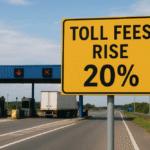 Countdown to the Euro: Preparing for Bulgaria’s 2026 Currency Switch
Countdown to the Euro: Preparing for Bulgaria’s 2026 Currency Switch
Bulgaria is counting down to a major economic milestone: its planned adoption of the euro in January 2026. For the first time since the Lev became the national currency in 1881, Bulgarians will carry different coins and notes in their wallets — and join the shared currency used by over 340 million Europeans.
Why Bulgaria is Joining the Eurozone
Bulgaria’s decision is rooted in both economics and politics. The country has been a member of the European Union since 2007, and under its accession treaty, adopting the euro was always part of the long-term commitment. Supporters argue that joining the Eurozone will strengthen Bulgaria’s financial stability, lower borrowing costs, and integrate the country more deeply into Europe’s single market. It’s also expected to reduce exchange rate risks for trade and tourism, key sectors of Bulgaria’s economy.
Meeting the Criteria
The road to the euro runs through the so-called Maastricht criteria — strict rules on inflation, interest rates, government debt, and budget deficits. Bulgaria has pegged its Lev to the euro since 1999 under a currency board arrangement, which helps keep the exchange rate stable. Still, the government must ensure inflation remains under control and public finances meet EU thresholds. The country joined the Exchange Rate Mechanism II (ERM II) in 2020, the “waiting room” for the euro, and has been aligning banking regulations, anti-money laundering rules, and fiscal policies with Eurozone standards.
Public Debate and Concerns
Not everyone is convinced that the change will be painless. Polls show Bulgarians are divided — some worry about price increases, citing examples from other countries that adopted the euro. Others see it as a loss of national identity, with the Lev carrying historical and cultural symbolism. Proponents counter that inflationary spikes are typically short-lived, and that the benefits for investment and economic growth outweigh the drawbacks.
How Businesses and Banks Are Preparing
For Bulgaria’s financial sector, the countdown is already underway. Banks are upgrading IT systems, recalibrating ATMs, and training staff to handle dual currency operations during the transition period. Businesses will be required to display prices in both Lev and euro for several months before and after the switch, helping consumers adjust. The government has launched public information campaigns to explain conversion rates, consumer rights, and anti-fraud measures.
Looking Ahead to 2026
If all goes according to plan, January 1, 2026 will mark Bulgaria’s official entry into the Eurozone. In the months that follow, Lev banknotes will be gradually withdrawn, and euros will take their place in cash transactions. For Bulgaria, it will be more than a monetary shift — it will be a symbolic step further into the heart of Europe’s economic and political union.





